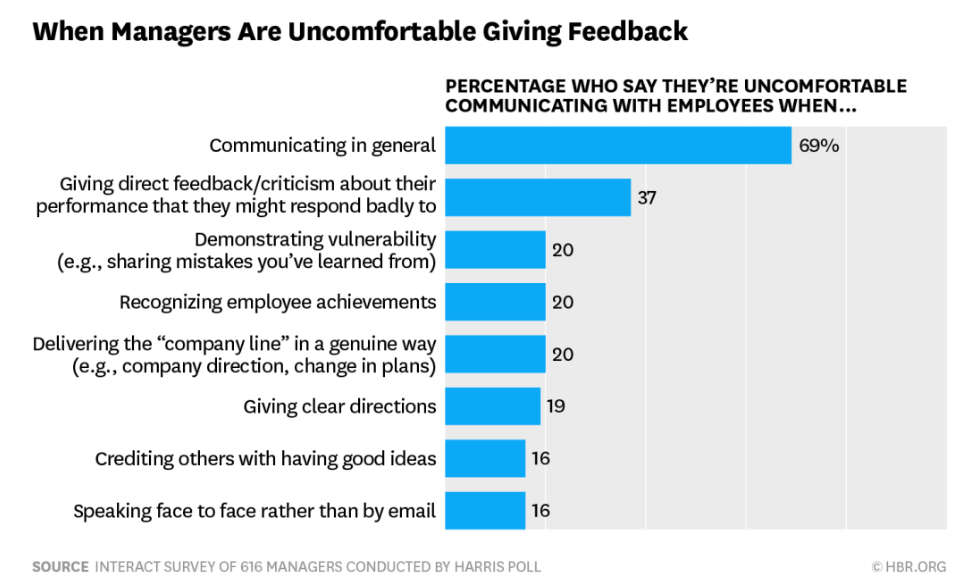
Managers - your people are looking for communication. What are you doing to help?
A few years ago, before I started writing a book or even thought about starting a company, I found myself in conversation after conversation about why people either quit or were thinking of quitting their jobs. In every single case, the reason they left, or were leaving, was their manager. Their managers didn’t know, or care to know, anything about them as people. As a result, they felt disconnected and were most certainly not feeling heard nor understood.
After so many conversations like this, I knew I had to do something—say something! There’s an epidemic of bad people leadership out there, but it’s something that can be changed. Through caring, consideration, and communication.
So often organizational leadership is removed from their employees. Executives come and go without so much as a “hello” when they visit work locations. They don’t appear to understand what is important to those who work at levels lower than senior leadership, and they certainly don’t develop any personal connections with the underlings. What’s important to them meeting KPIs. Don’t talk to them of people concerns. Just show the numbers.
The thing is, people concerns result in poor KPIs. The two are intertwined. This makes sense, of course, because it’s the people who do the work, turn the wrench, build the thing. Without them, production slows, customer satisfaction declines, and revenues decrease.
Even so, the big thing employees would truly appreciate—feeling heard and understood—is still something that is not considered an organizational imperative.
Interesting… if I told a CEO I could increase their company’s productivity by 22%, think they’d want to hear more? I’d say so.
It’s been proven that engaged employees are 22% more productive than their disengaged colleagues. Nice! Okay—what can we do to up engagement?
The answer is: Train your managers.
Managers are the key variable in employee engagement. The chief reason people provide for leaving a job is their manager, but it’s also the chief reason people stay in a job. So, the manager’s role is crucial. Managers are the key point of connection between employee and organization. And managers are in the best position to communicate from the organization to the employee and from employee to organization.
Remember, employees want to feel heard and understood. It doesn’t take any money or special tools to accomplish this. Just listen to them. Even so, this just isn’t happening in workplaces. With only 22% of the world’s workers being engaged (meaning 78% of them are willing to walk at any moment if they get a better offer), organizations have a long way to go in the communication department.

According to these poll findings, people leaders are not engaging in the very activities that would engage their employees. Considering how much money companies spend on employee surveys and other feedback mechanisms, this is quite amazing. There is a decided lack of emotional intelligence among business leaders, and this prevents them from being effective, and having peak effectiveness in their organizations.
Healthy communication involves making connections. With more than 50% of employees reporting their managers don’t have time to meet with them, or refuse to talk to them, you can see how so many workers are disconnected and disengaged.
Recently I spoke with someone who is feeling a true sense of “why do I work here?” While she is comfortable with the tasks she currently does, she is also pining for more. Repeated requests to learn more about other areas of the business have been acknowledged, but never acted upon and she is feeling ignored and kept in the dark. If she only had some insight into why there is no answer, she might be more content to wait. However, the way it sits now, she feels the best way to move up is to move on.
Companies all over the world are lamenting about not being able to attract and retain quality candidates. Certainly, this is keenly felt in the trades. I’ve heard of so many difficulties in getting technicians, and then I’ve heard of techs leaving their jobs because they’ll get paid $1 per hour more elsewhere. I am fairly certain the money is not the key reason they’re leaving (maybe in some cases, but not in most). One dollar per hour is not a significant enough jump in pay to make people want to move. Nope—there are other factors driving them out the door.
Looking at this list, you can see that employees are not making outlandish demands. Rather, they are asking to be heard and recognized, as well as kept in the loop. According to Dr. Edward Hallowell, M.D., the two most powerful experiences in life are achieving and connecting. Employees who report to managers who don’t acknowledge their good work and don’t want to communicate with them will feel disconnected and, thus, disengaged. Disengaged employees are unwilling to put in more than the minimum effort and are looking for other opportunities (perhaps where they will be recognized).
Think about your own experiences as an employee. Which managers encouraged you to do your best—the brilliant, but busy manager with no time to connect or the brilliant and encouraging manager who connected with you as a human? I bet you chose the latter.
People leaders, if you’re wondering why your employees are leaving or don’t seem to want to do good work, take a look at the graphic above and ask yourself what you’re doing to try to connect. Do you recognize their achievements? Do you speak to them on a regular basis and get to know them as a person? Do you even know their names? How about providing direction and giving effective feedback? If you answer “no” to any of these questions, then maybe you’re the problem.
The good news is we can help. Talk to us about soft skills training for the people leaders on your team.